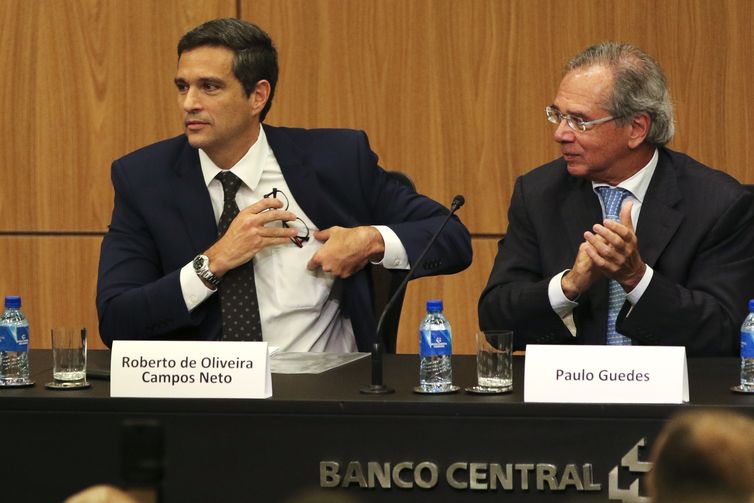Roberto Campos Neto delivered his first address after taking office
In his first address in his new post, Roberto Campos Neto, president of Brazil’s Central Bank, advocated the institution’s formal autonomy. He said he will seek to keep inflation at low levels and in check, and vowed to continue enhancing transparency in the communication with society.

“We are really in a well-tuned orchestra being led by conductor Paulo Guedes”, Campos Neto said – Fabio Rodrigues Pozzebom/Agência Brasil
“In addition to working to preserve the achievements, strides must be made. In this connection, we believe that an autonomous Central Bank would be better prepared to consolidate recent gains and make room for the new progress the country needs so much,” Campos Neto declared.
Appointed by Economy Minister Paulo Guedes in November, Campos Neto did not take office until late in February because he had to be questioned by the Senate in order to have his appointment approved. In the ceremony of transfer of position, he said he is proud to work with Guedes. “The meetings in Leblon [during the electoral campaign] will not be forgotten. We are really in a well-tuned orchestra being led by conductor Paulo Guedes,” he said.
Campos Neto pointed out he will work to have the Central Bank fulfill its two main missions: to preserve the purchasing power of the country’s currency through low inflation and solidity in the financial system. Next week, the president of the Central Bank will chair the first meeting of the Monetary Policy Committee (Copom), the agency that sets the Selic, Brazil’s benchmark interest rate, currently fixed at 6.5 percent a year.
In the first address, Campos Neto also said that the government will seek to expand the funds raised by major projects in the private enterprise, increase the access to the financial system, improve the population’s financial education, stimulate everybody’s participation in the market, and boost savings.
The autonomy of the Brazilian Central Bank is currently being considered by Congress. The idea is to prevent the president from interfering in the monetary policy, with the institution free to make decisions on interest and take the measures as it sees fit.